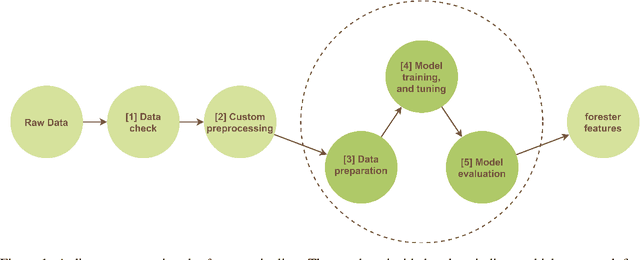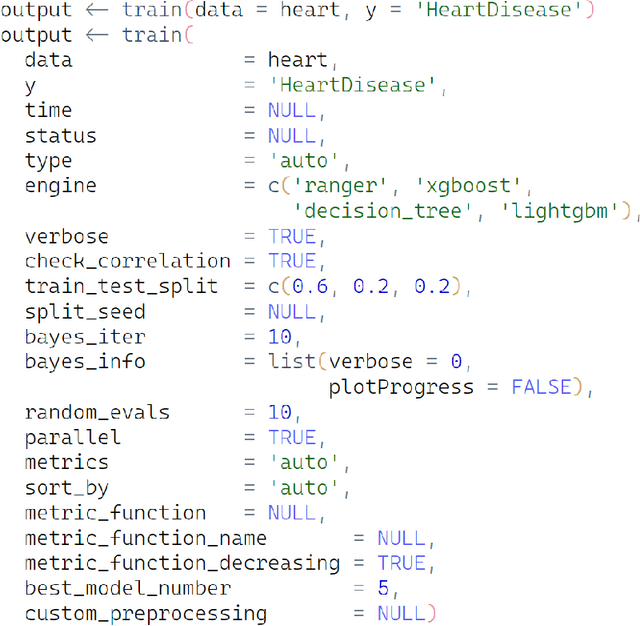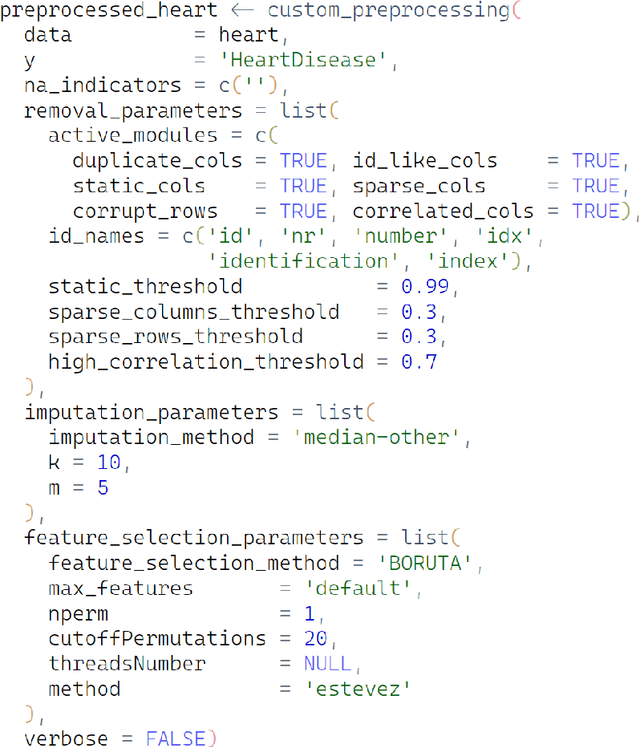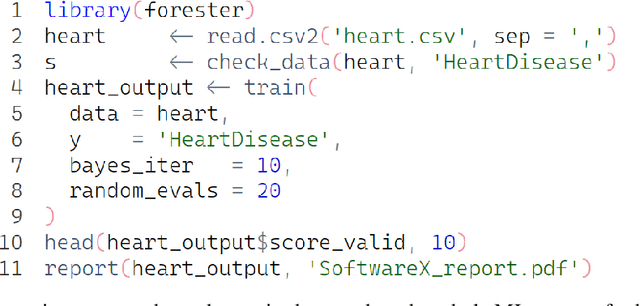Hubert Ruczyński
forester: A Tree-Based AutoML Tool in R
Sep 07, 2024



Abstract:The majority of automated machine learning (AutoML) solutions are developed in Python, however a large percentage of data scientists are associated with the R language. Unfortunately, there are limited R solutions available. Moreover high entry level means they are not accessible to everyone, due to required knowledge about machine learning (ML). To fill this gap, we present the forester package, which offers ease of use regardless of the user's proficiency in the area of machine learning. The forester is an open-source AutoML package implemented in R designed for training high-quality tree-based models on tabular data. It fully supports binary and multiclass classification, regression, and partially survival analysis tasks. With just a few functions, the user is capable of detecting issues regarding the data quality, preparing the preprocessing pipeline, training and tuning tree-based models, evaluating the results, and creating the report for further analysis.
Big Tech influence over AI research revisited: memetic analysis of attribution of ideas to affiliation
Dec 20, 2023Abstract:There exists a growing discourse around the domination of Big Tech on the landscape of artificial intelligence (AI) research, yet our comprehension of this phenomenon remains cursory. This paper aims to broaden and deepen our understanding of Big Tech's reach and power within AI research. It highlights the dominance not merely in terms of sheer publication volume but rather in the propagation of new ideas or \textit{memes}. Current studies often oversimplify the concept of influence to the share of affiliations in academic papers, typically sourced from limited databases such as arXiv or specific academic conferences. The main goal of this paper is to unravel the specific nuances of such influence, determining which AI ideas are predominantly driven by Big Tech entities. By employing network and memetic analysis on AI-oriented paper abstracts and their citation network, we are able to grasp a deeper insight into this phenomenon. By utilizing two databases: OpenAlex and S2ORC, we are able to perform such analysis on a much bigger scale than previous attempts. Our findings suggest, that while Big Tech-affiliated papers are disproportionately more cited in some areas, the most cited papers are those affiliated with both Big Tech and Academia. Focusing on the most contagious memes, their attribution to specific affiliation groups (Big Tech, Academia, mixed affiliation) seems to be equally distributed between those three groups. This suggests that the notion of Big Tech domination over AI research is oversimplified in the discourse. Ultimately, this more nuanced understanding of Big Tech's and Academia's influence could inform a more symbiotic alliance between these stakeholders which would better serve the dual goals of societal welfare and the scientific integrity of AI research.
 Add to Chrome
Add to Chrome Add to Firefox
Add to Firefox Add to Edge
Add to Edge